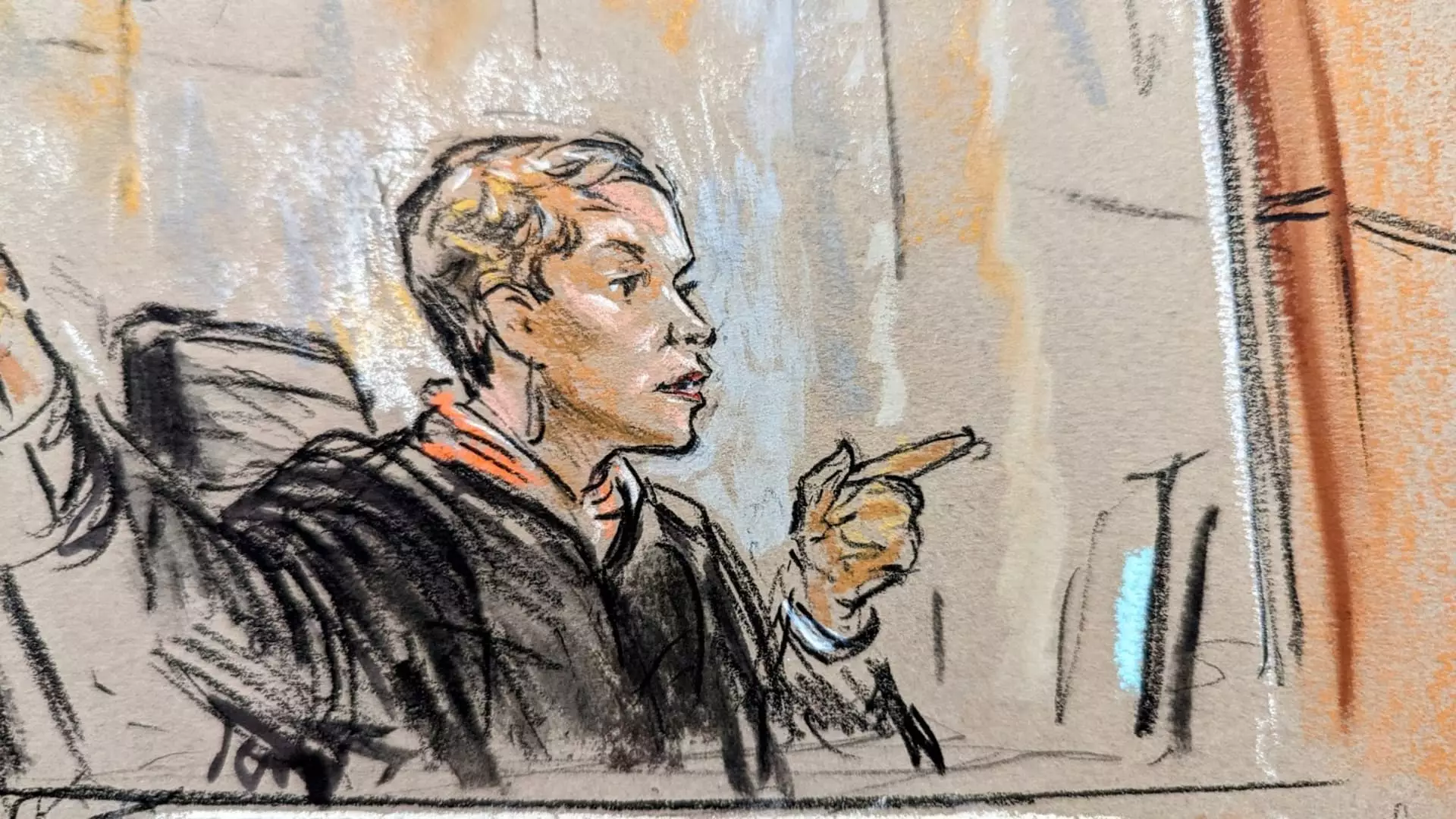The ongoing legal battle faced by former President Donald Trump highlights a complex interplay between the judicial system and electoral politics, particularly as he engages in a criminal case related to alleged election interference. In a controversial recent statement, Trump labeled U.S. District Court Judge Tanya Chutkan as “the most evil person,” claiming that her actions to unseal nearly 1,900 pages of documents worked against his candidacy as he prepares for the upcoming election. This confrontation raises significant questions about the integrity of judicial processes and the potential ramifications for the upcoming presidential race.
Trump’s assertions stem from charges brought by special counsel Jack Smith, which accuse him of attempting to overturn the results of the 2020 election. Central to this case are documents that Judge Chutkan has ordered to be publicly disclosed, documents that Trump’s legal team argued should remain sealed until after the November presidential election. Their contention is that releasing these filings could sway public perception and ultimately interfere with electoral outcomes.
Judge Chutkan’s decision to release the documents reveals her interpretation of the law’s commitment to transparency over the potential political fallout that could arise. As she aptly noted in her ruling, withholding information beneficial to public interest solely due to its challenging implications in the election context could itself amount to a form of interference. This perspective reflects a commitment to judicial integrity, seeking to ensure that the courtroom remains distinct from the political arena.
Trump’s vocal condemnation of Judge Chutkan on Dan Bongino’s podcast reflects a broader tactic in his defense strategy: to frame the judicial proceedings against him as politically motivated. By labeling the judge and the process as inherently biased, Trump seeks to galvanize his base while potentially questioning the legitimacy of the judicial actions taken against him. This approach raises serious implications not only for his case but for public trust in the judicial system.
However, the judge’s response to Trump’s accusations underscores the importance of maintaining a judiciary that upholds legal standards above political fray. Her assertion that Trump’s legal team has relied on political rhetoric rather than addressing substantive legal questions highlights frustrations within the court system regarding the defensive strategies employed in high-profile cases. The judiciary functions to ensure justice is served based on facts and laws, not opinion or speculation, and such discussions can threaten to undermine the very foundation of legal accountability.
The Role of the Media and Public Perception
Media coverage plays a pivotal role in shaping public perception in cases like Trump’s, where the intersection of law and politics becomes pronounced. Trump’s statements about Judge Chutkan and special counsel Smith gain traction and amplify his narrative, compelling voters and constituents to align with his perspective, regardless of the legal realities at play. This media amplification can have profound effects, creating an environment where legal proceedings are not viewed in isolation but through the lens of partisan loyalty.
Moreover, the narrative of “election interference,” as presented by Trump, can resonate deeply with segments of the population that are already skeptical of the political establishment. Thus, fostering this line of thought serves to not only fortify Trump’s support base but potentially complicate the perception of judicial integrity in the eyes of voters. The danger lies in fostering an environment where the judicial process is viewed as another battleground for political warfare, rather than a legitimate system meant to administer justice.
As the legal proceedings advance, the challenge will be to balance political accountability with judicial independence. Judge Chutkan’s cautious yet firm commitment to transparency serves as a reminder of the importance of an unbiased judicial process. Trump’s ongoing narrative will likely continue to evolve, but the fabric of democracy rests on the ability of its institutions to operate autonomously, upholding the rule of law regardless of the political implications.
In the coming months, as Trump’s criminal case progresses and the election approaches, it will be crucial for both the courtroom and the public to recognize that the processes of justice and electoral politics must not be conflated. The engagement of political figures in legal matters invites scrutiny and skepticism but preserving the integrity of the judiciary is paramount for a functioning democracy. The ongoing discourse around these events may well reshape both public perception and the future landscape of American politics.


Leave a Reply